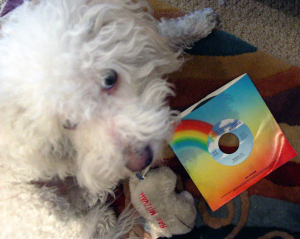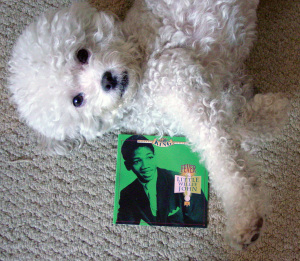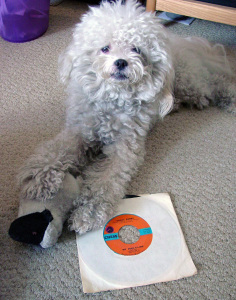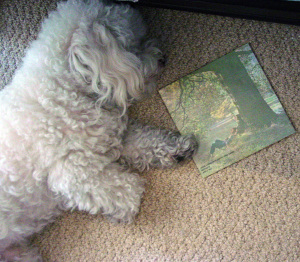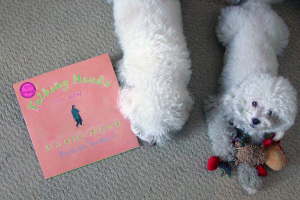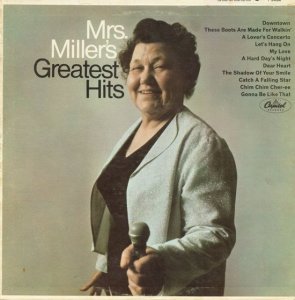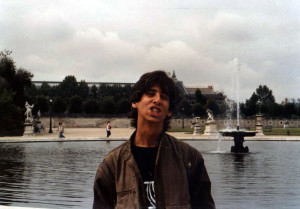“I just know that the Grammys, if they want real artists, to keep coming back, they need to stop playing with us. We ain’t gonna play with them no more. And Beck needs to respect artistry and he should’ve given his award to Beyoncé. Because when you keep on diminishing art and not respecting the craft and smacking people in their face after they deliver monumental feats of music, you’re disrespectful to inspiration. And we as musicians have to inspire people who go to work every day, and they listen to that Beyoncé album and they feel like it takes them to another place.” – Kanye West on the Grammy Award for Album of the Year going to Beck’s Morning Phase rather than Beyoncé’s self-titled release
“I thought she was going to win. Come on, she’s Beyoncé! You can’t please everybody, man. I still love [West] and think he’s genius. I aspire to do what he does.” – Beck
“I wasn’t saying Beck; I said the Grammys. Beck knows that Beyoncé should have won; you know that. Come on, man. I love Beck! But he didn’t have the Album of the Year.” – Kanye West
Kanye West, official spokesperson for the Bey Nation, gave his opinion and the Internet blew up! It was a repeat of 2009, when West announced that Taylor Swift stole the MTV Best Female Video Award that should have gone to Beyoncé. The American people were up in arms! So much vitriol was sent West-ward and his detractors found plenty of reasons to go after him the ensuing years. As the wise trophy thief said, “the haters gonna hate hate hate hate hate.”
Kanye’s point was about creating art and reaching new heights in one’s craft. The only intelligent responses to further this discourse, per the many comments I saw on Facebook and Twitter, are “You’re classless” and “You’re garbage.” One person who didn’t call Kanye garbage was Shirley Manson, the lead singer of the band Garbage. She called him “a complete twat.”
At least all of us can sleep better knowing that Kanye loves Beck. They are two of my favorite all-time artists for many of the same reasons. They seldom repeat themselves, making each album they release different than the previous one. Neither follows trends. Both challenge themselves. Both are masters of their craft. Both can be sincere. Both can be funny. Neither has released a bad record.
However…
Beyoncé should have gotten the Album of the Year Grammy. Her self-titled album was a revelation. Following up her uneven 4, she took a giant leap forward and strived to make something more artistic than what we were used to from her. She succeeded. The Beck record, Morning Phase, sounds beautiful, but there were no surprises. It was announced early in 2014 that Beck would be releasing a new album that was in a mellow vein. I got what I expected. It was as fine as I thought it would be, and stronger than his last couple of releases. I like Morning Phase very much, more than the other nominated Albums of the Year performed by Ed Sheeran, Sam Smith and Pharrell Williams, but it’s nothing we haven’t heard Beck do before. Ironically, in Beyoncé’s quest to be more artistic, her album outsold its predecessor. Like Kanye said, she had the Album of the Year.
Enough of the Grammy voters felt otherwise and awarded Beck. That’s fine. There have been worse slights in the Grammy Album of the Year category than Beyoncé losing to Beck. What about the 1996 awards, when Beck’s Odelay lost to Celine Dion’s Falling into You? Or in 2000, when Beck’s Midnight Vultures lost to Steely Dan’s Two Against Nature? Or in 2005, when U2’s Hot to Dismantle an Atomic Bomb beat Kanye’s Late Registration and in 2004, when Ray Charles & Friends’ Genius Loves Company beat Kanye’s The College Dropout and Green Day’s American Idiot? Steely Dan, U2 and Ray Charles have released many albums deserving of Album of the Year. These weren’t them. U2 should have won 1992’s Album of the Year for Achtung Baby. They lost to Eric Clapton Unplugged. In 2007, Kanye’s Graduation and Amy Winehouse’s Back to Black both lost Album of the Year to Herbie Hancock’s River: The Joni Letters, a record that literally nobody has ever heard. In 1980, Christopher Cross’ self-titled debut beat Pink Floyd’s The Wall. In 1966, The Beatles’ Revolver lost to Frank Sinatra’s A Man and His Music. In 2012, Mumford & Sons’ Babel beat albums by Frank Ocean, Jack White and The Black Keys. The nominees for 1984’s Album of the Year Grammy were Prince’s Purple Rain, Bruce Springsteen’s Born in the USA, Tina Turner’s Private Dancer, Cyndi Lauper’s She’s So Unusual, and Lionel Richie’s Can’t Slow Down. Four classic albums plus one by Lionel Richie. The winner? Lionel Richie! WTF on a stick?!?! In 1991 the Album of the Year Grammy didn’t go to R.E.M., nominated for Out of Time. It went to Natalie Cole’s Unforgettable…with Love. Eligible but not nominated that year? A little album called Nevermind by a band named Nirvana. Oh well, whatever. In 1982, Toto IV beat…it doesn’t matter who else was nominated. It’s Toto Fuckin’ IV, people.
It looks like Beyoncé will have to wait longer before she is in the same hallowed company as Toto.
In less contentious news this week, ISIS killed U.S. hostage Kayla Mueller, Boko Haram killed thirteen soldiers and 81 civilians in Chad, and the Chief Justice of Alabama’s Supreme Court forbade probate judges in that state to issue marriage license to same-sex couples, despite a judge’s ruling that such unions are legal and the U.S. Supreme Court refusing to issue a stay on that ruling.
Congratulations, Beck!
Click here to like Tunes du Jour on Facebook!
Follow me on Twitter: @TunesDuJour
